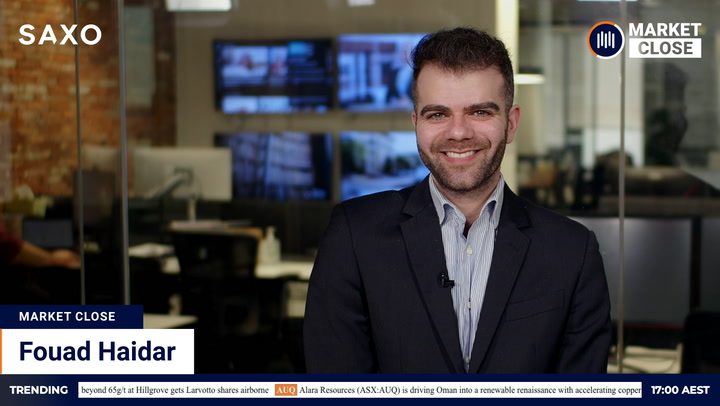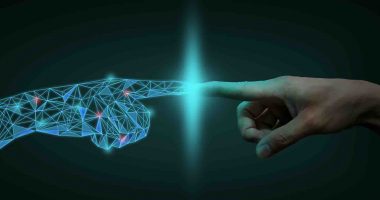Sonia Madigan:
Uranium continues to rally, this week peaking higher than US$60 a pound. That’s well above levels it’s traded at for many years.
The founder of Paladin Energy and now MD and CEO of Deep Yellow, John Borshoff, is here to discuss.
Welcome, John.
John Borshoff:
Very, very pleased to be here.
Sonia Madigan:
Now, John, you’ve just got back from London, from the annual meeting of the World
Nuclear Association.
You were among explorers, miners, through to producers of nuclear energy. What was your key takeaway?
John Borshoff:
The industry was bullish before the conference started, and by the time we’d finished, it
was even more.
It was in overheat mode, both at the market side in terms of what the suppliers needed
to produce, yellowcake; conversion material enrichment, which [is] way beyond current
capacities.
And on the other side, the demand, which is now there’s an initiative out there, the Net Zero Nuclear, which wants to triple the nuclear fleets by 2050 to meet the objectives of zero emissions by 2050.
Sonia Madigan:
Now, John, you founded Paladin Energy. Briefly, what did you learn about the industry
from that, that you’ll bring to Deep Yellow?
John Borshoff:
I’ve had three episodes of learning and still learning. I firstly was with a big German group where I got blunted with uranium and the whole fascinating sector.
When I finished with that I, as you say, I founded Paladin and on that one was a fairly dismal time after Chernobyl, [we] invested in a contrarian way thinking that demand will come in and we positioned ourselves beautifully for when the Chinese came in and what did I learn?
We learned that you’ve got to take some risk, learnt that you’ve got to have great teams,
and learnt that whatever you say, you do. So your vision must become the reality.
Yes, Fukushima disrupted that, but we were on song on every parameter during that episode.
In Deep Yellow, it’s a different sort of dynamic where supply, for me, was the issue after the supply industry has been fragmented, largely been sedentary and people haven’t been putting enough expertise into it and I felt sure the supply would need to increase, and, we were equipped with my old team from Paladin.
What we discovered with Deep Yellow with our two flagship projects and it was all for me about positioning ready for what is now currently happening [with commodity prices.]
Sonia Madigan:
So what projects do you have and why are you confident they’ll succeed?
John Borshoff:
Well, essentially they are driven from both the zero-emission issue that didn’t exist really to such sort of formality four years ago, and the Ukraine-Russia war, which security and supply then came into it.
So our strategy, at Deep Yellow, was to end up with diversity, having projects in two different jurisdictions, one in West Australia, and one in Namibia. Really important now in this new sort of environment.
And the other one is the added emphasis needed with zero emission and how nuclear has slotted itself in beautifully because of the sort of parameters of this technology, which is high-density energy, small space, and delivery 24-7, not only for electricity but for desalination, process heat, hydrogen, whatever you want.
Sonia Madigan:
So how do you see nuclear’s role in the green energy transition?
John Borshoff:
I see nuclear as a fundamental prerequisite to the whole change that is happening.
Everybody forgets that nuclear reactors, if it’s a thousand megawatt, it produces a thousand megawatt of electricity, but it produces almost double that in thermal capacity, which can be used in process heat, etc.
It’s a beautifully adaptive technology that people are unnecessarily fearful of.
Sonia Madigan:
Well, if we can just talk about one thing that worries me, is nuclear waste worth worrying
about?
John Borshoff:
Not really. Let’s give it a sort of a size parameter first.
In the 75 years that nuclear has been producing electricity with the 436 reactors, the total high-level waste, it can be put on a soccer pitch about 10 metres high.
That’s it. The whole lot. Now, When you think of other technologies, the amount of coal ash or emissions, it just can’t be compared.
So firstly, we’re not dealing with a large amount.
Secondly, engineering-wise, there are solutions there that are profoundly safe in rocks that will not change for millions and millions of years.
In that time frame, the decays that take will take two, three hundred thousand years.
It just doesn’t matter. It’s not just waste or ash. These are metals down there and they have future use.
So it’s just the perception of the public that have, you know, these issues, but not the reality is not there in terms of, you know, we can put it away safely.
Sonia Madigan:
So before we go, John, do you think that uranium’s rally is going to continue?
John Borshoff:
I think there’s nothing ever confronted this planet during this whole 350-year industrial revolution like what is confronting it now.
We have developed on fossil fuel. Energy is the heart of our civilisation and if we can’t replicate long-term cheap electricity it will affect our whole civilisation and economic well-being.
Nuclear is there absolutely to do that, both in terms of the resources because essentially a nuclear reactor is concrete and steel.
Whereas these big farms, be it wind and solar, they are hungry for resources, hungry for the amount of land that people aren’t prepared to give up and sacrifice.
And, reticulating all that into one system with a volatile grid is an enormous job and
I don’t believe it can be done effectively.
Sonia Madigan:
John Borshoff from Deep Yellow, great to see you here in the studio.
John Borshoff:
Thank you.






